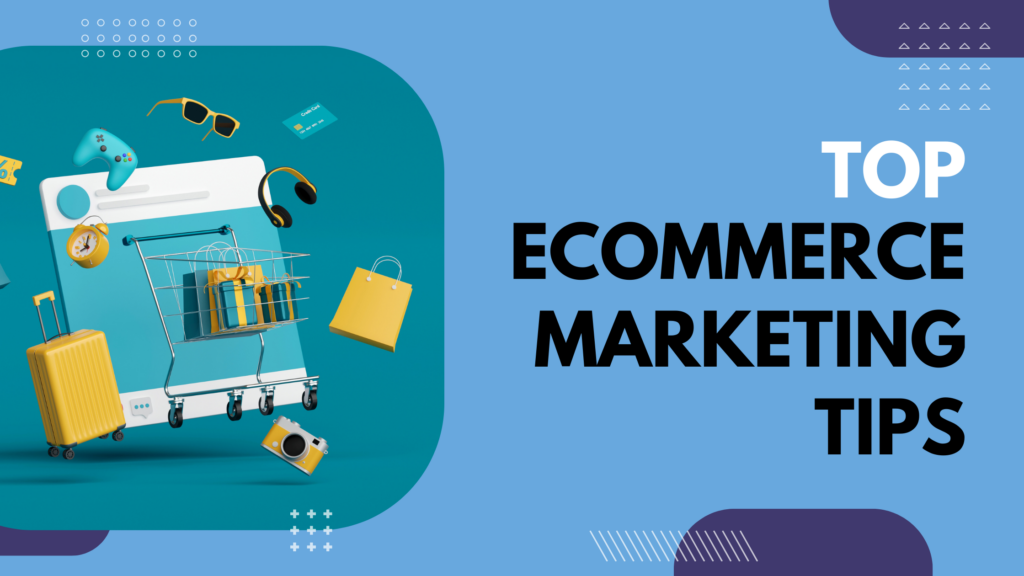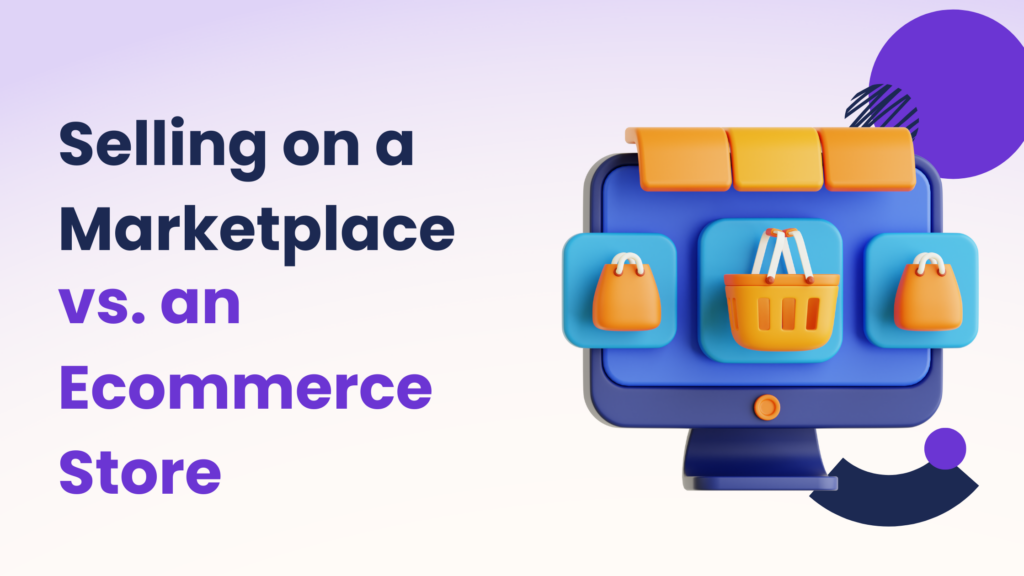Top Ecommerce Marketing Tips 2024
In 2017, there were 1.6 billion online shoppers. There is even more expected in 2018 which means there are a ton of opportunities for online retailers. On the other hand, it also means there will be a ton of competition. Now the number of online shoppers have increased to 2.71 billion marking a 2.7% year over year increase.
To stay ahead of your competitors, you need a strong marketing plan. To do that, we’ve compiled the top marketing tips and tricks of the year for you to try.
Email Marketing is Essential
Email marketing has become absolutely essential with the cost of advertising continuing to grow. It gives ecommerce retailers a way to leverage current customers by building data and segmented customer audiences.
Email marketing can be a powerful marketing tool to engage with existing customers, who, with the proper strategy, will become loyal and continue to buy your products. Here are some ways you can use email marketing to create happy, returning customers:
- Engage existing customers – Use email marketing to make special offers, deals, or discount codes to your current customers.
- Attract new customers – Work on building your email list in 2018. There are some engaging ways to approach potential shoppers and turn them into customers. Try using free shipping offers, quizzes, and free giveaways to entice customers to provide you with their email address so they can be added to your email marketing list.
Related: 4 Essential Ecommerce Emails Your Business Needs
Branding is Vital
If you aren’t actively working on establishing your brand, it should be a goal for 2018. Branding is vital for two very important reasons. First, it serves to increase customers’ perceived value of your products. And second, it helps build trust with customers, which encourages them to buy more from your store.
If you use dropshipping as your order fulfillment method, this may be difficult due to the lack of branded packaging. That means you need to concentrate branding efforts on your website, other sales channels, and marketing materials.
As you are building a brand, think about it from an omnichannel perspective. You want customers and potential buyers to find consistency and engagement across all sales channels.
Here are some great ways to work on branding this year:
- Make a personal connection – Customers love stories. Tell them about yourself and business, with a consistent message across all sales channels. This not only personalizes your brand, but it also creates an environment of trust – which is essential to increasing the number of return customers.
- Use social media – It’s easy and inexpensive to use social media posts and images to improve your branding. Promote sales, specials, and content on social media to engage your customers and show them what your company is all about. Be sure all graphics follow a certain theme and color palette to further build brand awareness.
- Consider white labeling – White labeling allows you to purchase generic products from manufacturers and resell them using your own name and branding. This is a great alternative for those sellers who dropship.
Video Content is a Must
Video content has taken the market by storm and will continue to grow this year. It’s a great way to convert sales, lower cost-per-acquisition, and cost-per-click down. You’ll also notice that many ecommerce retailers are using slideshows and more images. While these tactics are necessary and do work, you will likely find that videos demonstrating your products are much more effective.
Some easy videos to begin with are:
- Tutorials – How-to videos are popular with online buyers. Use video content that shows customers exactly how to use your products and how the product will improve their life.
- Unboxing – These videos work best for those white-label sellers. Videos that show customers opening boxes and getting excited about the products inside are all over social media these days. And, if you look at how many views they get, you can see that they work. These types of videos are quick and easy to shoot; just show someone unboxing your products, giving a quick (but engaging) description of what they are.
- Customer reviews – Ask customers to post videos of product reviews on your social media pages. Many online shoppers take ratings and reviews into consideration before buying a product online, and it requires very little work from you.
Assembling a Strong Team is Key
Competition in the ecommerce industry continues to increase. That means you’re going to have to hire more people or partners to keep up. Growing your business involves focusing on delegation. Successful business owners have to let go of some of the day-to-day operations in order to have sustained growth.
Whether you need additional marketing help, additional suppliers or 3PL, or need to partner with more effective software solution companies, now is the time to strengthen your team. Here are a couple of great ways to grow a strong team:
- Make sure your vendors are on the same page – It’s important that the partners you use for operations are all on the same page. For example, if your store is known to deliver in 3 days, ensure that you work with suppliers who can uphold that time stamp. If your brand is eco-friendly, make sure your suppliers are using eco-friendly materials.
- Integration will simplify operations – When you’re choosing software solutions, make sure that they all integrate together. This will save time and labor costs because there won’t be any duplicate data entry.
Sourcing New Products is Important
As competition online grows, it’s important that you sell unique and useful products that appeal to customers. There is a lot of money to be made for ecommerce entrepreneurs, but it often takes something extra to set you apart from other sellers.
Many online sellers opt to use the same photos and descriptions that come from the product manufacturers. It’s important to remember when you follow someone else’s path, you’re always going to be behind them. Here are some key ways to source new products:
- Look for unique products – Items that suit your brand and offer online shoppers something new and exciting are a great place to start.
- Create original product content and images – This will set your products apart from other online stores and listings.
- Do your research – There are many online publications and websites available to help you source new products. Try these to get started: Inventory Source, The Cool Hunter, PSFK, SaleHoo, and Trend Hunter.
Search Engine Optimization
SEO involves optimizing your website and content to improve its visibility in search engine results. By using relevant keywords, optimizing meta tags, and creating high-quality content, you can rank higher in search engine results pages (SERPs).
This increases organic traffic to your website and improves your chances of attracting potential customers who are actively searching for products or services related to your business. Here are some tips for better SEO for ecommerce marketing:
- Keyword Research – Identify relevant keywords and phrases that your target audience is likely to use when searching for products online. Incorporate these keywords strategically into your website content, product descriptions, and meta tags to improve search engine visibility.
- Optimized Product Listings – Ensure that each product listing is optimized for search engines by including relevant keywords in the product title, description, and attributes. Use high-quality images and provide detailed product information to enhance the user experience and increase the likelihood of ranking higher in search results.
- Mobile Optimization – With the increasing number of mobile shoppers, it’s essential to optimize your ecommerce website for mobile devices. Ensure that your website is responsive and loads quickly on mobile devices, as mobile-friendliness is a significant factor in search engine rankings. Additionally, optimize images and minimize page load times to provide a seamless browsing experience for mobile users.
Content Marketing
Content marketing involves creating and sharing valuable, relevant content to attract and engage a target audience. This content can take various forms, such as blog posts, articles, videos, infographics, and social media posts.
The goal is to provide helpful information, solve problems, or entertain, rather than directly promote products. By consistently delivering high-quality content, businesses can build trust, establish authority in their industry, and ultimately drive traffic and sales to their ecommerce platforms.
Some tips for better content marketing are as follows:
- Consistent Blogging – Regularly publishing high-quality blog posts relevant to your target audience’s interests and pain points establishes your brand as an authority in your niche. Offer valuable insights, tips, and solutions to address customer needs and attract organic traffic to your website.
- Visual Content Creation – Incorporating visually appealing content formats such as infographics, videos, and interactive quizzes enhances engagement and captures audience attention. Visual content communicates information more effectively and is more likely to be shared on social media platforms, expanding your brand reach.
- User-Generated Content Campaigns – Encouraging customers to create and share content about their experiences with your products or brand fosters authenticity and trust. Run user-generated content campaigns, such as photo contests or testimonials, to showcase real-life interactions with your products and leverage social proof to influence purchasing decisions.
Voice Search
Voice search optimization involves optimizing website content and product listings to improve visibility and accessibility for voice-enabled devices and assistants. This includes incorporating natural language keywords and phrases, structuring content to answer common voice search queries concisely, and ensuring that website design is compatible with voice search technology.
By optimizing for voice search, ecommerce businesses can reach a broader audience and enhance the user experience for customers using voice-enabled devices.
Some points for better Voice Search in Ecommerce Marketing are mentioned below:
- Optimize Product Descriptions – When creating product descriptions, use natural language and conversational phrases that mirror how people speak. Incorporate long-tail keywords and question-based phrases that align with common voice search queries.
- Improve Website Accessibility – Ensure that your ecommerce website is optimized for voice search by making it mobile-friendly and structuring content in a clear and organized manner. Use schema markup to provide search engines with additional context about your products and services.
- Focus on Local SEO – Since many voice searches are location-based, prioritize local SEO strategies to increase visibility in local search results. Include location-specific keywords and phrases in your content, and claim your business listings on platforms like Google My Business to improve your chances of appearing in voice search results for nearby customers.
Live Chat
Live chat allows customers to communicate directly with a company representative in real-time while browsing a website. This instant messaging feature provides immediate assistance, answers to questions, and support throughout the purchasing process. Live chat enhances customer satisfaction by addressing concerns promptly and can lead to increased sales conversions.
It also provides valuable insights into customer needs and preferences, helping businesses improve their products and services.
Important points for live chat in ecommerce marketing are:
- Instant Customer Support – Live chat allows customers to receive immediate assistance with their inquiries or concerns. By offering real-time support, businesses can address customer issues promptly, leading to higher satisfaction and increased trust in the brand.
- Personalized Interaction – Utilize live chat to engage with customers on a personalized level. Tailor responses to individual needs and preferences, providing a more customized shopping experience. Personalized interactions build rapport and foster stronger relationships, increasing the likelihood of repeat purchases and customer loyalty.
- Proactive Engagement – Use live chat as a proactive tool to engage with website visitors and guide them through the purchasing process. Initiate conversations with customers who exhibit signs of hesitation or uncertainty, offering assistance and product recommendations. Proactively engaging with customers can reduce cart abandonment rates and ultimately boost sales conversions.
Wrapping Up
This year is going to be big for ecommerce. More consumers than ever are shopping and buying online, presenting countless opportunities for your online business.
However, that also means you will face more and more competition. So, use email marketing to leverage your current customer base, optimize your branding for greater engagement, add more video content, work with a strong team, and sell unique products that come with original product content to stay in the game.
Guest Blogger:
Ecomdash is an inventory and order management software for online retailers. They focus on providing small to medium-sized businesses with actionable tips and strategies for building a lucrative ecommerce business.







